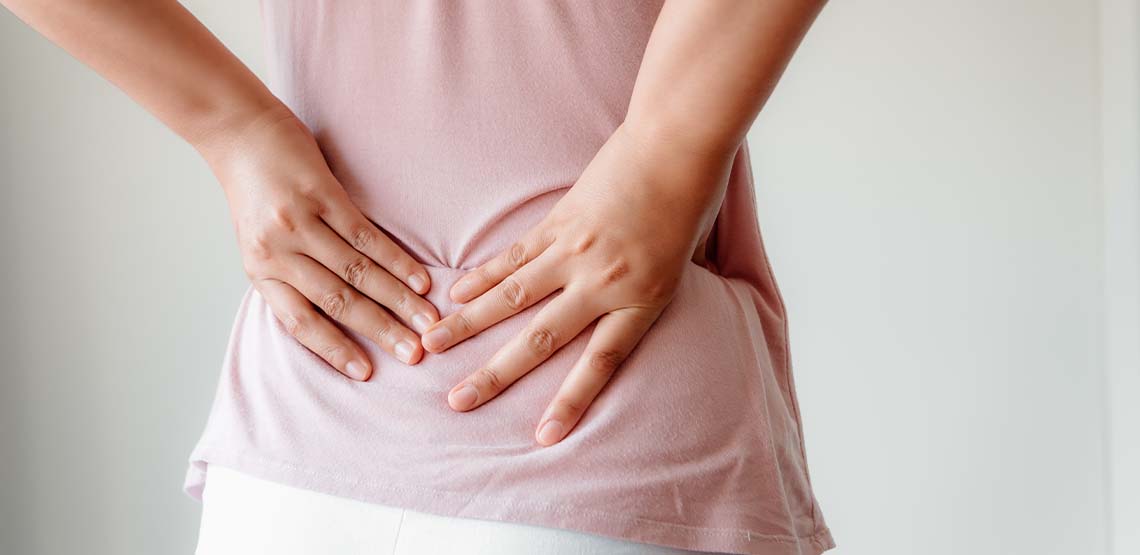What Are the Symptoms of Passing a Kidney Stone?
Kidney stones are a common problem that affects a lot of people. According to the National Kidney Foundation, in the U.S., the risk of getting a kidney stone sometime in your life is 9% for women and 19% for men. But can these painful stones be prevented, and are you are risk? Here we explain the symptoms of passing a kidney stone so you can know if it is happening to you.
What Are Kidney Stones?
Kidney stones are hard deposits of minerals that often form in the kidneys, but they can also develop anywhere in the urinary tract, including the bladder.
Normally, the urine contains waste products. Having enough liquid in the urine usually flushes the waste away. But in some cases, the waste is not washed away, and crystals form. The crystals than attract other minerals and form a solid “stone”, which may be hard to pass out of the body when a person urinates.
Types of Kidney Stones
There are different types of kidney stones. According to the Mayo Clinic, most kidney stones are calcium stones, which are composed of calcium oxalate. Other stones may consist of uric acid or develop due to an infection.
The size of the stone can vary greatly. For example, some are tiny, while others can grow as large as a golf ball.
Causes and Risk Factors
Anyone can develop a kidney stone, but there are certain things that increase a person’s risk:
- Having a previous kidney stone
- A family history of kidney stones
- A diet very high in protein
- Excess salt in the diet
- Not drinking enough water
- Obesity
- History of gastric bypass surgery
- History of cystic kidney disease
- Taking certain types of medications, such as those that contain calcium
Having certain medical conditions can also increase a person’s risk of developing kidney stones. For instance, a disease, such as Crohn’s disease, may increase the risk.
Symptoms of Passing a Kidney Stone
If a kidney stone is small, it may be passed out of the urinary tract without many symptoms. A person may not even realize they are passing a stone. But in other cases, if a stone is large, it can lead to several symptoms.
As the stone travels from the kidney to the ureter, it can lead to pain. If it is large enough, it can be difficult for it to move through the ureter and out of the body.
A larger stone may cause varied symptoms:
- Sharp pain in the lower abdomen or back, which may be severe
- Pain when urinating
- Blood in the urine
- Nausea
While the stone is moving through the urinary tract, it can be very painful. As the stone is actually passed through the ureter and eliminated in the urine, the pain can be quite severe. Pain medication is often given to ease discomfort.
Related Search Topics (Ads)
Diagnosis
The symptoms of a kidney stone can also mimic other conditions. But an accurate diagnosis is essential for the right treatment. To diagnosis a kidney stone, a doctor performs a physical exam. A urine test is also helpful in ruling out other causes of symptoms, such as an infection. Imaging tests, including a CT or ultrasound of the kidneys, are very useful to make a diagnosis.
Treatment
The treatment for kidney stones depends on the size of the stone. People who have a small stone may pass it without any medical intervention. Home treatment usually includes medication for the pain and drinking plenty of water to help move the stone through the urinary tract.
For people who have a large stone that is blocking the urinary tract, additional treatment is often recommended, and different treatment options are available:
Lithotripsy
This type of treatment involves breaking the stone into small pieces by using shock waves. The treatment is often done under general anesthesia to prevent feeling pain. After the shock wave treatment, the stone is broken down, and the small pieces are eliminated through the urine.
Ureteroscopy
An ureteroscopy involves a surgical procedure under general anesthesia. The doctor inserts a long tube into the ureter to locate and remove the stone. Usually, this is only used if other less invasive procedures do not work or if the stone is very large.
Prevention
When it comes to kidney stones, your best bet is to try to prevent them from developing in the first place. Although there is no definitive way to prevent a stone, there are a few things you can do:
Drink Plenty of Water
According to the American Kidney Fund, the best way to prevent kidney stones is to drink enough water daily. Although individual needs may vary, most people need between 8 and 12 cups of water a day.
Keep in mind, other fluids, such as decaffeinated tea and juice, count towards fluid intake, but water is best. Also, some medical conditions may require an individual to restrict fluids. If you are on fluid restriction, talk with your doctor about how much water you can drink.
Know Your Risk Factors
Knowing your risk factors helps you work with your doctor to determine if you need to take any special precautions to prevent stones from developing.
Consider Limiting Sodium
If you are at a high risk of developing kidney stones or you have developed them in the past, you may want to decrease your salt intake.


